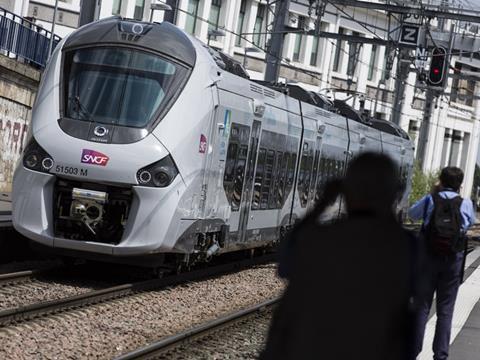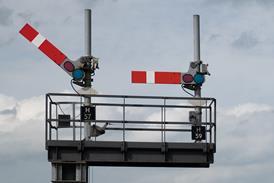
FRANCE: Meeting on September 26, the SNCF board approved a draft financing agreement which paves the way for replacement of the ageing fleet used to operate longer-distance passenger trains on the conventional network, known as trains d’équilibre du territoire.
Loss-making services on 38 designated routes, used by around 100 000 passengers per day, are supported by the government under an agreement signed in December 2010. This provided €210m a year for three years to support Corail, Intercités, Téoz and Lunéa services, which are now all grouped under the Intercités brand.
The convention committed the government to investing €300m for rolling stock refurbishment. Earlier this year the ministry announced that €400m would be allocated to start the fleet renewal process, and on July 9 Prime Minister Jean-Marc Ayrault committed to complete replacement of the TET fleet.
The package endorsed by the SNCF board totals €510m, plus an option for an additional €100m. Much of the money would go on a build of 30 Alstom Régiolis multiple-units, configured for longer-distance operations. These would replace diesel locomotives and loco-hauled stock, offering an estimated 30% saving in energy consumption. The remainder would fund the construction of depots to maintain and service the new trains. The first vehicles are due to be delivered in 2015.
Transport Minister Frédéric Cuvillier welcomed the decision, noting that it ‘reflects the priority that the government wants to give to trains on the conventional lines, because it is really necessary to offer regular passengers better service and more comfort.’
The state contribution will be provided by the transport infrastructure funding agency AFITF, which is due to confirm the package at its meeting on October 3. This would then enable SNCF to confirm the various contracts.
Cuvillier also welcomed the board’s decision to extend the TET operating agreement until December 31 2014, which would provide an additional year to work on ‘redefining’ the Intercités service offer, as well as enhancing co-ordination with the regions and TER organising authorities. There have been suggestions that some trains making many stops will be transferred to local control, whilst others will be accelerated to provide a greater differentiation between national and regional services.




















